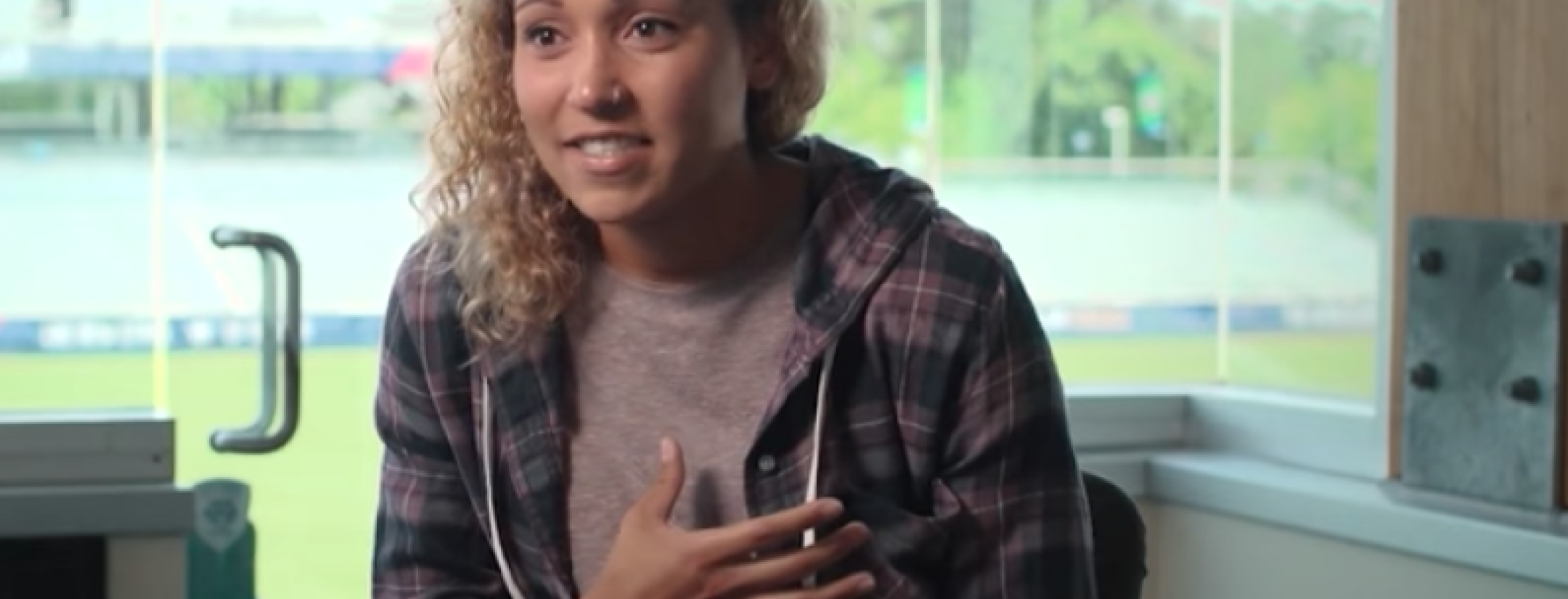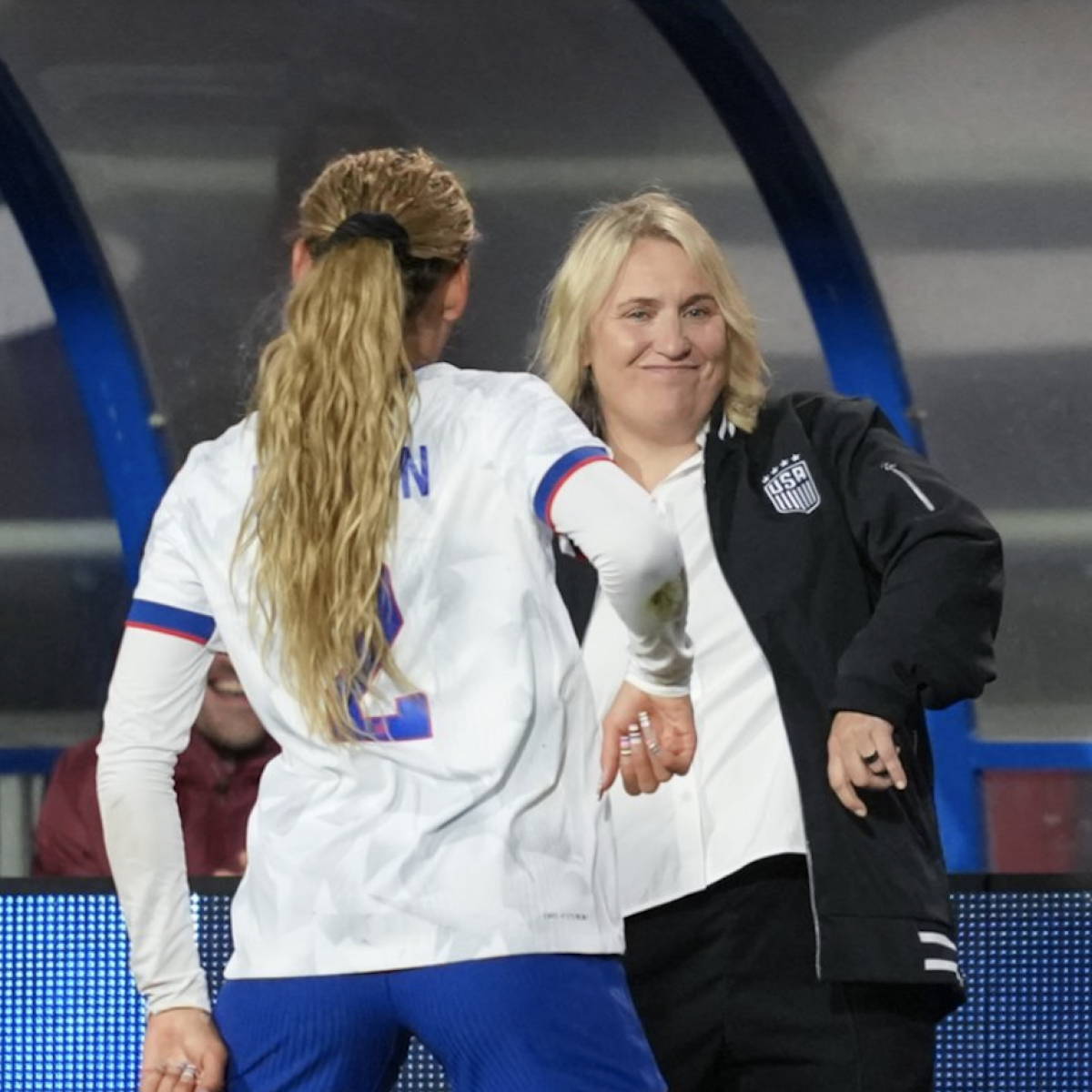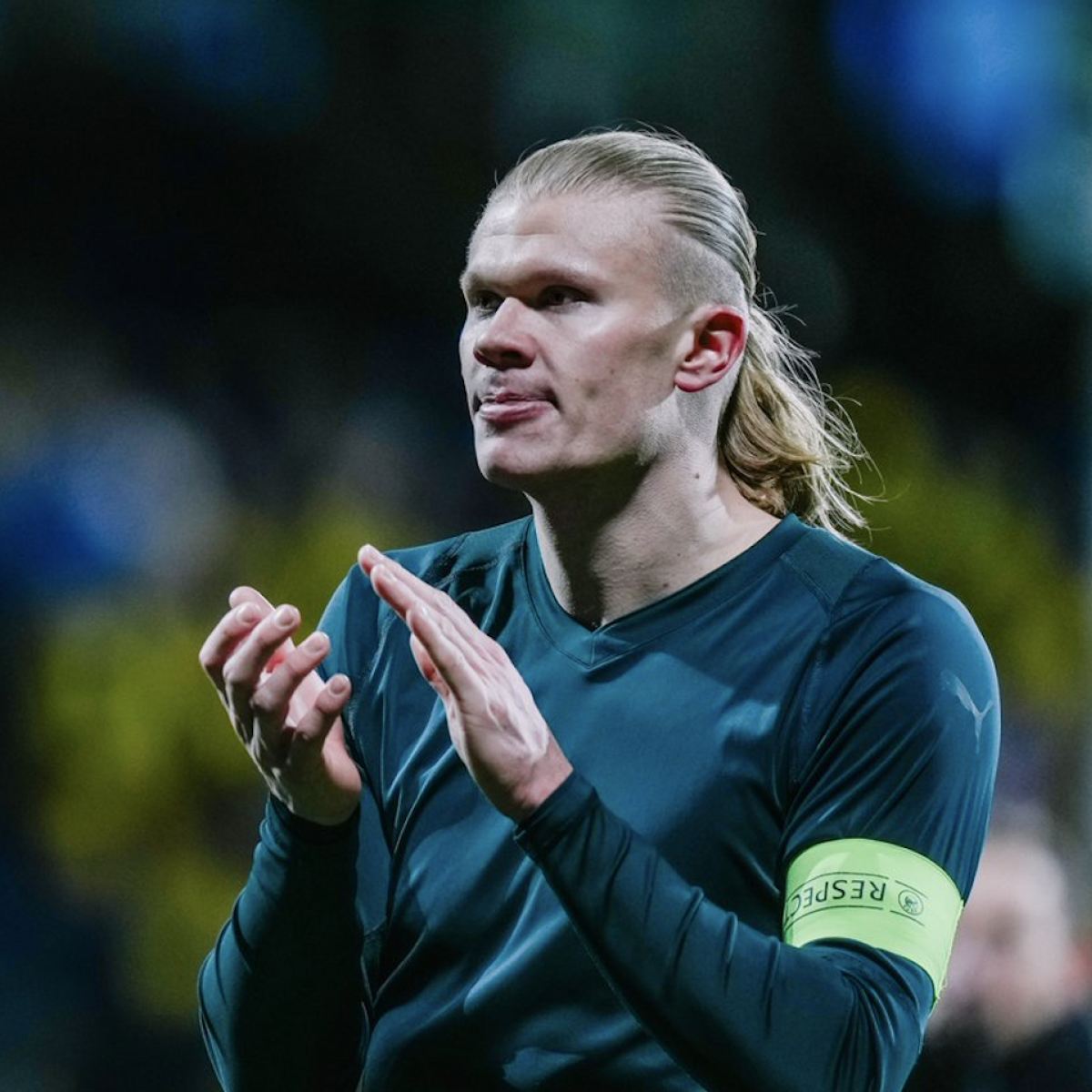USWNT players are typically cheered wherever they take the field for a NWSL match. But on Wednesday, North Carolina Courage defender Jaelene Hinkle, who has eight U.S. caps to her name, was roundly booed as her name was announced ahead of an away match against the Portland Thorns.
Jaelene Hinkle isn’t a name most soccer fans are too familiar with despite a career in the NWSL that dates back to 2015 and includes the aforementioned USWNT appearances. But she became a lightning rod for debate after a recent interview with The 700 Club was released on Wednesday.
Last June, Hinkle was given a national-team call-up to play in a couple friendlies. She declined the opportunity, at the time citing “personal reasons.” In the recent interview, she admitted to what had already been rumored: She declined the call-up because the USWNT was going to be wearing jerseys commemorating LGBTQ Pride Month.
US soccer teams will wear rainbow-colored jersey numbers for LGBTQ Pride month pic.twitter.com/pwcym27NLg
— Open Mind Sports (@OpenMindSports1) May 26, 2017
“I just felt so convicted in my spirit that it wasn’t my job to wear this jersey,” Hinkle said (video below).
Jaelene Hinkle turned 25 on Monday; being the target of boos and LGBTQ symbols probably weren’t in her celebration plans. Nonetheless, the fans in Portland let Hinkle know how they felt about her choices, booing every time she went near the ball.
A "PERSONAL REASONS" in rainbow letters two-pole in Portland at tonight's Thorns FC/NC Courage match. Referencing Jaelene Hinkle declining a USWNT call-up last summer because of the jerseys the team wore in honor of LGBTQ Pride Month. pic.twitter.com/UpZTJq3f3b
— Jacob Cristobal (@jacobcristobal) May 31, 2018
Because this is America in the Trump era, there is plenty of vitriol going on from both sides. NWSL fans are a diverse group, but a high percentage of them are members of the LGBTQ community. Many are also religious, members of all faiths.
Many people did not appreciate Hinkle saying she could not support a community to which many of her own teammates belong. Many in the religious community decry the actions of those in Portland for criticizing a woman for making a choice based on her faith. But many Christians also support LGBTQ rights and decry fellow Christians for their own lack of tolerance.
Of course, it gets much stickier than that whenever the debate of religious tolerance vs. social tolerance intersects. Is it ever acceptable to criticize someone for making a decision based on religion? Is it ever OK for a religion to tell people how they should live their lives, regardless of whether they belong to said religion? These are questions for a different website to answer, but a few things should be noted here.
First, Portland fans have every right to boo, make signs and cheer for their team. Free speech protects both the fans in the stands and those on Twitter for most of what has been said.
Second, Hinkle shouldn’t be forced to wear something she doesn’t believe in, but she also shouldn’t expect a call-up from the national team anytime soon. The USWNT has a long history of openly gay players, some of whom are among the team’s all-time greats. If Hinkle doesn’t want to be associated with that, that’s her choice.
Third, it’s important to note Hinkle’s interview was with The 700 Club, the news/talk show run by Pat Robertson on the Christian Broadcasting Network. Robertson is a media mogul and TV evangelist who has a history of making statements ranging from the insensitive to the downright offensive. He has said objectively horrible things about non-Christians and even about victims of natural disasters and terrorist attacks. By agreeing to an interview with this controversial outlet, Hinkle has aligned herself with a group of people who have a history of intolerance and bigotry.
Fourth, this isn’t to say Hinkle is a bigot just because she did an interview with The 700 Club. A coach and teammate both spoke up for her after Wednesday’s match.
"At the end of the day, I'm still going to be friends with her,” forward Jessica McDonald said. “We have no problems with each other. She's never said anything bad about me. She never said anything bad about anybody. So, for people to pass on that kind of judgment on another human being, I think it's sort of uncalled for. She's got her opinions. That's fine. Everybody does. It hasn't affected our team at all."
Courage coach Paul Riley added: "She's got a good heart, and she battled through the game. It's not an easy thing for her. I give her a lot of credit to be perfectly honest. Whatever her beliefs are, whatever she believes in, that's her. It doesn't affect the team. It doesn't seem to affect anybody on the team.''
What’s important to remember here is actions have consequences. If Jaelene Hinkle wants to be known as the player who declined a USWNT opportunity because she couldn’t support the LGBTQ community, then that’s her prerogative and in the video she appears willing to accept those consequences.
And fortunately — at least for now — Americans still have the right to choose their own beliefs and speak openly about them, whether they support Hinkle’s decision or not.




